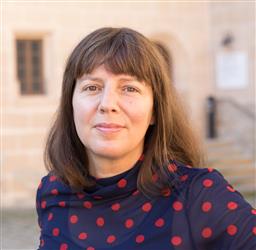ProjektDANUBE – Tracing connectivity via ceramic technology in riverine environment of the Middle Danube Region during…
Grunddaten
Akronym:
DANUBE
Titel:
Tracing connectivity via ceramic technology in riverine environment of the Middle Danube Region during the Ottoman period
Laufzeit:
01.08.2024 bis 31.07.2026
Abstract / Kurz- beschreibung:
DANUBE aims to study cultural connectivity among potters in riverine environment of the Middle Danube Region during the 16th-17thcenturies, which is a phenomenon of central importance for an archaeological interpretation of cultural change in Central Europe initiated with the Ottoman expansion. This interdisciplinary study combines archaeological and scientific analyses of common pottery with an anthropological theory on technology and written sources of the Ottoman period to reconstruct the ceramic production technology and means of knowledge transmission along the Danube-Sava-Drava rivers. Common pottery included in DANUBE is part of six largely unstudied archaeological collections from Serbia and Croatia, and this project aims to highlight existing potentials of the Middle Danube Region for archaeological studies of the post-medieval period. Focusing on pottery consumed in riverine settlements after the Ottoman conquest, the project explores links between ceramic morphology, technology and cultural connectivity. DANUBE is the first study of riverine connectivity in Post-Medieval Archaeology of Central Europe. Although DANUBE deals with a specific region, it can be used as an exemplar for addressing broader cross-cultural and methodological questions regarding the role of rivers for networks of knowledge exchange and connectivity in the context of large-scale migrations, military pressure and cultural change. The project introduces the regional-scale approach to ceramic studies in the Middle Danube Region and goes beyond ceramic morphology to explore human interactions along large rivers of Central Europe.
Schlüsselwörter:
Archaeometry
Ceramics
Cultural Connectivity
Riverine Environment
Archaeology
Chemical Analysis
Beteiligte Mitarbeiter/innen
Leiter/innen
Institut für Ur- und Frühgeschichte und Archäologie des Mittelalters (UFG)
Fachbereich Altertums- und Kunstwissenschaften, Philosophische Fakultät
Fachbereich Altertums- und Kunstwissenschaften, Philosophische Fakultät
Lokale Einrichtungen
Institut für Ur- und Frühgeschichte und Archäologie des Mittelalters (UFG)
Fachbereich Altertums- und Kunstwissenschaften
Philosophische Fakultät
Philosophische Fakultät
Geldgeber
Brüssel, Belgien


